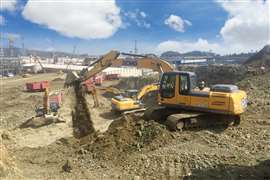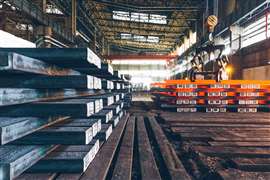Canada imposes tariffs on Chinese steel, aluminium, EVs
27 August 2024
Canada has announced plans to impose tariffs on Chinese imports, including a 25% duty on Chinese steel and aluminium and 100% on electric vehicles (EVs) made in China.
 Image: JHVEPhoto via AdobeStock - stock.adobe.com
Image: JHVEPhoto via AdobeStock - stock.adobe.com
The Canadian government said that the surtax on steel and aluminium was not only to protect Canada’s workers but also to prevent “trade diversion” resulting from recent actions taken by Canada’s trading partners. Both the US and Europe have recently introduced further tariffs on Chinese goods.
The surtax on electric vehicles will be 100% and applies to a variety of different road-going vehicles, including passenger EVs, plug-in hybrid passenger autos, hybrid and electric trucks, trucks powered by fuel cells, and hybrid and electric buses.
However, details of the surtax released by the Canadian government did not appear to include off-highway construction equipment.
Separately, the government of Canada said it would launch a second 30-day consultation concerning other sectors “critical to Canada’s future prosperity” including batteries, battery parts, semiconductors, solar products and critical minerals.
And it announced its intention to limit eligibility for the Incentives for Zero-Emission Vehicles (iZEV), the Incentives for Medium and Heavy Duty Zero Emission Vehicles (iMHZEV), and the Zero Emission Vehicle Infrastructure Program (ZEVIP) to products made in countries which have negotiated free trade agreements with Canada.
Canada’s deputy prime minister and minister of finance Chrystia Freeland said, “Canada is home to the talented workers, raw materials, clean electricity, and specialized production capabilities needed to build electric vehicles, and that is why our EV supply chain potential is ranked first in the world.
“Canadian workers and critical sectors, including steel and aluminum, however, are facing an intentional, state-directed policy of overcapacity, undermining the Canada’s ability to compete in domestic and global markets. That is why our government is moving forward with decisive action to level the playing field, protect Canadian workers, and match measures taken by key trading partners.”






